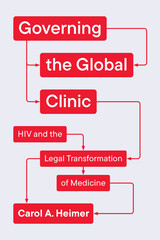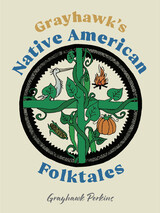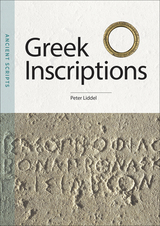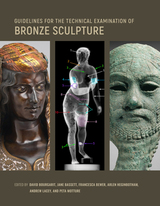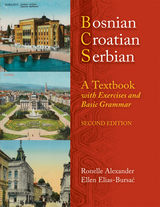
• All dialogues, exercises, and homework assignments available in Bosnian, Croatian, and Serbian
• Classroom exercises designed for both small-group and full-class work, allowing for maximum oral participation
• Reading selections written by Bosnian, Croatian, and Serbian authors especially for this book
• Vocabulary lists for each individual section and full glossaries at the end of the book
• A short animated film, on an accompanying DVD, for use with chapter 15
• Brief grammar explanations after each dialogue, with a cross-reference to more detailed grammar chapters in the companion book, Bosnian, Croatian, Serbian, a Grammar.

•Classroom exercises designed for both small-group and full-class work, allowing for maximum oral participation
•Reading selections written by Bosnian, Croatian, and Serbian authors especially for this book
•Vocabulary lists for each individual section and full glossaries at the end of the book
•A short animated film, on an accompanying DVD, for use with chapter 15
•Brief grammar explanations after each dialogue, with cross-reference to more detailed grammar chapters in Bosnian, Croatian, Serbian, a Grammar
Available separately, the audio supplement (ISBN 0-299-22110-5) offers audio recordings of all dialogues in Bosnian, Croatian, and Serbian, a Textbook.

Approximately five million people worldwide speak Albanian. The opening of Albania in the 1990s to broader trading and diplomatic relations with other nations has created a need for better knowledge of the language and culture of this country. This book teaches the student to communicate in everyday situations in the language, with each chapter introducing a new situational context. Students learn to discuss work, vacations, health, and entertainment. Students also learn to practice basic skills such as shopping, ordering tickets, and renting an apartment. Upon completing this textbook, students will be at the A2/B1 level of proficiency on the scale provided by the Common European Framework of Reference for Languages (CEFR).
The textbook includes:
• eighteen lessons based on real-life situations, including three review lessons
• dialogues to help introduce vocabulary and grammatical structures
• comprehension questions and exercises
• related readings at the end of each chapter
• full translations for all examples discussed in grammar sections
• a series of appendixes with numerous charts summarizing main classes of nouns, adjectives, and verbs
• an appendix with the solutions to most of the exercises in the book
• a glossary with all the words in the dialogs and readings.
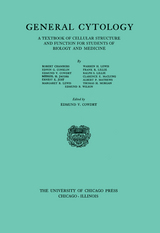
This volume was, at the time of publication, the largest and most comprehensive book on the subject of cytology, a branch of zoology which had grown considerably in the years before 1924. It was written by the foremost cytologists in the United States, including Robert Chambers, Edwin G. Conklin, Edmund V. Cowdry, Merle H. Jacobs, Ernest E. Just, Margaret R. Lewis, Warren H. Lewis, Frank R. Lillie, Ralph S. Lillie, Clarence E. McClung, Albert P. Mathews, Thomas H. Morgan, and Edmund B. Wilson.
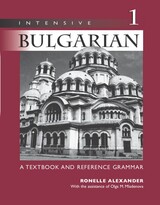
This is the first comprehensive textbook teaching English-speakers to read, write, and speak contemporary Bulgarian. The text is designed to be adaptable for students of varying skill levels and can be taught at a gradual or intensive pace. It is also a much-needed reference grammar of Bulgarian, incorporating the latest research and theories on Bulgarian grammar in accessible layman’s language.
Volume 1 introduces the basic elements of Bulgarian grammar and contains Lessons 1–15, a Bulgarian-English glossary, an English-Bulgarian glossary for beginners, and an appendix of verbal forms. Like many popular language textbooks, the dialogues in Intensive Bulgarian form a continuing dramatic narrative that gradually introduces students to both language and culture. Throughout the text, Bulgarian constructions and phrases are compared with English ones to clarify grammar and idioms.
Lessons include:
o dialogues and sample sentences
o exercises and translation sentences
o basic and supplemental grammar sections
o reading selections
o a glossary for the lesson
o cultural notes.
Together, Volumes 1 and 2 of Intensive Bulgarian provide all the materials necessary for teachers and students to learn lively, modern colloquial Bulgarian, to become familiar with Bulgarian cultural life, and to thoroughly understand Bulgarian grammar. Slavic scholars will also find in Volume 2 both a thorough presentation of the Bulgarian verb system, as traditionally conceived, and a new analysis of this system.
![front cover of Intensive Bulgarian 1 Audio Supplement [SPOKEN-WORD MP3]](https://www.bibliovault.org/thumbs/978-0-299-25035-5-thumb.jpg)
This audio MP3 is designed to supplement Ronelle Alexander’s Intensive Bulgarian, a two-volume textbook set that teaches students lively, modern colloquial Bulgarian, familiarizes them with Bulgarian cultural life, and thoroughly explains Bulgarian grammar. Intensive Bulgarian 1 Audio Supplement corresponds to Intensive Bulgarian 1 and Lessons 1–15, which introduce the basic elements of Bulgarian grammar. The audio tracks, spoken by native Bulgarians, present the dialogues for all lessons and supplementary materials for most lessons. Each track is introduced by a brief selection of authentic Bulgarian folk music. Each of the four items—the two volumes of the book and the two MP3 sets—is sold separately.
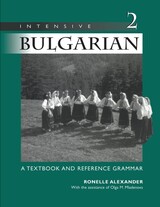
This is the first comprehensive textbook teaching English-speakers to read, write, and speak contemporary Bulgarian. The text is designed to be adaptable for students of varying skill levels and can be taught at a gradual or intensive pace. It is also a much-needed reference grammar of Bulgarian, incorporating the latest research and theories on Bulgarian grammar in accessible layman’s language.
Volume 2 contains Lessons 16-30 and introduces more complex points of grammar and syntax than Volume 1. It also includes a cumulative Bulgarian-English glossary covering both volumes. Like many popular language textbooks, the dialogues in Intensive Bulgarian form a continuing dramatic narrative that gradually introduces students to both language and culture. Throughout the text, Bulgarian constructions and phrases are compared with English ones to clarify grammar and idioms.
Lessons include:
o dialogues and sample sentences
o exercises and translation sentences
o basic and supplemental grammar sections
o reading selections
o a glossary for the lesson
o cultural notes.
Together, Volumes 1 and 2 of Intensive Bulgarian provide all the materials necessary for teachers and students to learn lively, modern colloquial Bulgarian, to become familiar with Bulgarian cultural life, and to thoroughly understand Bulgarian grammar. Slavic scholars will also find in Volume 2 both a thorough presentation of the Bulgarian verb system, as traditionally conceived, and a new analysis of this system.
![front cover of Intensive Bulgarian 2 Audio Supplement [SPOKEN-WORD MP3]](https://www.bibliovault.org/thumbs/978-0-299-25045-4-thumb.jpg)
This audio MP3 is designed to supplement Ronelle Alexander’s Intensive Bulgarian, a two-volume textbook set that teaches students lively, modern colloquial Bulgarian, familiarizes them with Bulgarian cultural life, and thoroughly explains Bulgarian grammar. Intensive Bulgarian 2 Audio Supplement corresponds to Intensive Bulgarian 2 and Lessons 16–30, which illustrate more complex issues of grammar and syntax. The audio tracks, spoken by native Bulgarians, present the dialogues for all lessons as well as two literary selections. Each track is introduced by a brief selection of authentic Bulgarian folk music. Each of the four items—the two volumes of the book and the two MP3 sets—is sold separately.

Modern Iraqi Arabic with MP3 Files is an introductory textbook—suitable for classroom or self-study—for those with no previous knowledge of Arabic or those who know Arabic but want to learn the Iraqi dialect. A detailed discussion of the consonants, vowels, and other characteristics of Iraqi phonetics—including pronunciation exercises on the CD—serves the needs of travelers, businesspeople, diplomats, archaeologists, and scholars who want to learn to speak the language quickly and efficiently.
Using the dialect of middle-class Baghdad, twenty lessons are arranged in a story-like format and are based on everyday travel situations. From arriving at the airport to getting to the hotel, students will learn proper greetings and introductions; how to ask for directions, take a taxi, and tell time; and prepare for daily activities like visiting the bank, museum, post office, and restaurants. The book contains basic dialogue, grammar, vocabulary, drills, and an extensive glossary. A section of idiomatic phrases, accompanied by their cultural, religious, or proverbial explanations, offers insight into current Iraqi culture.
NEW TO THIS EDITION: • Arabic script has been added so the reader has a choice of following the Arabic writing or the transcription in the Roman alphabet. • Four entirely new lessons cover medical care, media (radio, television, and journalism), telephone conversations, and cultural and folkloric tales. • All audio materials from the first edition—plus new audio materials for the new lessons—are included as MP3 files on a CD bound into the book.

The work is organized into sections that can be worked through in an academic year—presentation of features, text samples, exercises, grammatical synopses, and individual and comprehensive glossaries. This text may be used by teachers without specialized training in linguistics. It can be used by self-teaching students as well as by those at college level, and it will valuable for immigrants to Israel.

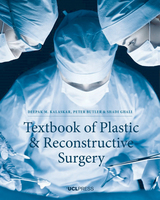
READERS
Browse our collection.
PUBLISHERS
See BiblioVault's publisher services.
STUDENT SERVICES
Files for college accessibility offices.
UChicago Accessibility Resources
home | accessibility | search | about | contact us
BiblioVault ® 2001 - 2025
The University of Chicago Press



